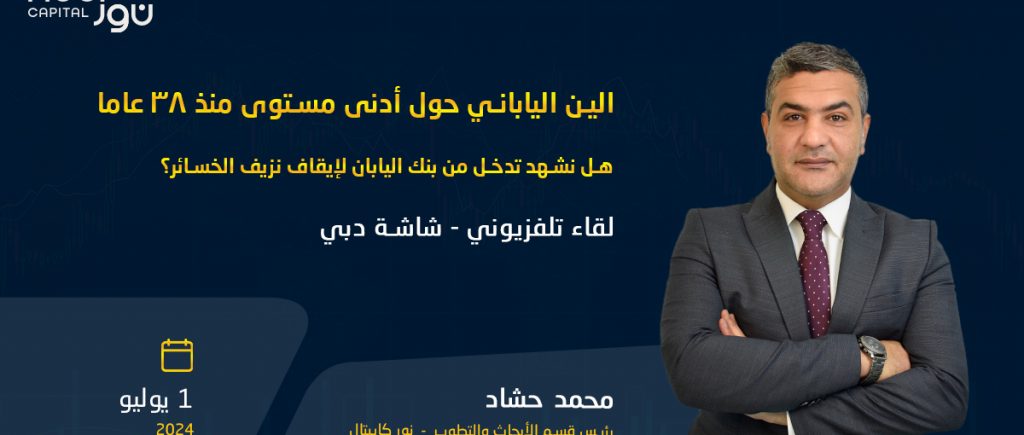Mohammed Hashad, Head of Research and Development at Noor Capital and a distinguished member of the US Association of Technical Analysts, provided insightful commentary and thorough analysis on the latest market dynamics and key asset performances in an exclusive interview with Dubai TV.
Let’s start with the United States. How do you see the impact of the Fed’s favourite inflation data on markets, including commodity and stock markets? What are the expectations for the monthly jobs report?
The markets reacted significantly after the release of the Federal Reserve’s preferred inflation index data. The data showed the growth rate of personal core consumption slowing to 2.6% instead of 2.8%. This had a clear impact on all financial instruments, starting with the US stock market, which saw notable increases supported by the idea of an approaching interest rate cut due to declining inflationary pressures.
In the currency markets, the US dollar weakened against a basket of major currencies as the need for maintaining higher interest rates diminished. Commodity prices were also affected, with gold rebounding from $2,290 to around $2,340 per ounce, and oil prices rising. These increases are supported by the notion that halting or slowing the pace of rate hikes may boost economic activity and thus demand for energy in the US, the world’s largest energy consumer.
Does this mean the upward momentum in oil continues, and are there other factors that may affect it?
Hashad: Oil is currently near its highest level in three weeks, benefiting from improved market sentiment due to prospects of increased American demand. It has also been bolstered by heightened geopolitical tensions between Russia and Ukraine, raising concerns about potential disruptions to Russian oil supply. Positive US GDP results and Middle Eastern geopolitical tensions have also played a role. We might see oil prices around $84 to $85 per barrel, provided they remain stable above $81.
We’ve seen the Japanese yen as the biggest loser against the dollar. What are the reasons, and do you expect intervention from the central bank?
Hashad: The yen is struggling around its lowest level against the US dollar in thirty-eight years. The breach of the 160 barrier to reach 161 was unexpected, especially after the Japanese government announced a larger contraction in the first quarter. The markets quickly interpreted this as ruling out a rate hike, keeping the yen in the negative interest rate phase. Additionally, the widening interest rate differential between Japan and the US, approximately 540 basis points, is contributing to the yen’s decline. I anticipate some form of intervention by the Bank of Japan, either directly or indirectly, to prevent further losses.
Can you elaborate on the euro and the factors affecting it in relation to the French legislative elections?
Hashad: The euro rose against the dollar, reaching its highest level in two weeks, driven by the preliminary election results in France. The right-wing National Rally party won the first round, though the final results are yet to be decided. The main impact will depend on the composition of the 577 electoral districts, which could positively influence the euro’s movements.
 Noor Trends News, Technical Analysis, Educational Tools and Recommendations
Noor Trends News, Technical Analysis, Educational Tools and Recommendations





